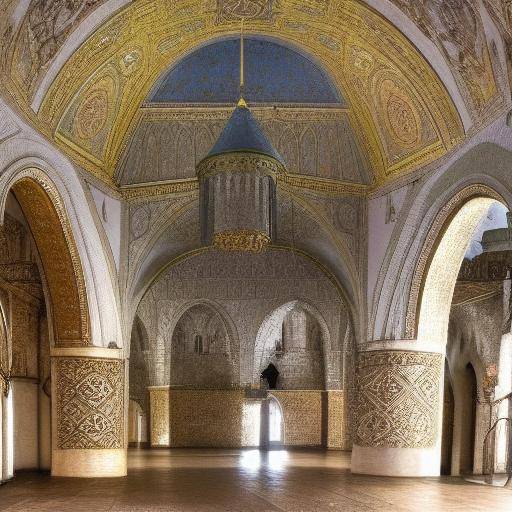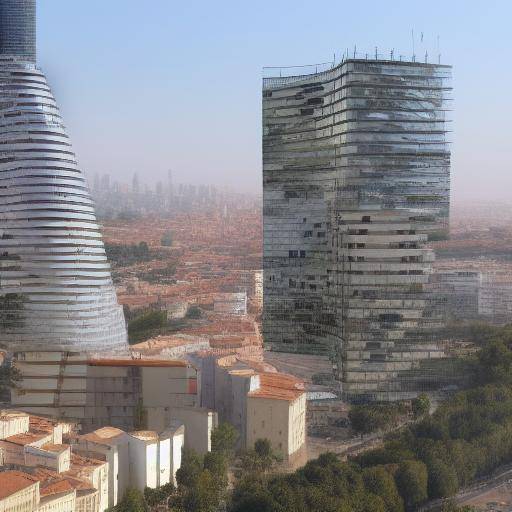
The Moscow Kremlin, a symbol of the rich Russian history, reflects centuries of power, change and resistance. From the medieval fortifications to its current role as the headquarters of the Russian government, the Kremlin has witnessed transcendental events that have shaped Russia and the world. In this article, we will thoroughly explore the rich history of the Kremlin, its relationship with Moscow and its impact on Russian history, from its humble beginnings to the present. We will also discuss its current relevance, offer expert insights and provide practical advice for those interested in immersed in this fascinating part of world history.
Introduction
The Kremlin of Moscow, an impressive fortress located in the heart of the Russian capital, has witnessed and participated in countless decisive moments in the history of Russia. From its imposing walls to its iconic domes, the Kremlin not only represents architectural grandeur, but also encloses a historical narrative that spans centuries of political intrigue, dynastic power and monumental challenges. In this article, we will explore the Kremlin from its medieval roots to its contemporary role, discovering the links that unite it to the history of Moscow and Russia as a whole.
History and Background
The Kremlin of Moscow, whose name refers to "fortress" in Russian, has its roots in the 12th century, when Prince Yuri Dolgoruky ordered the construction of the first wooden walls to protect the city of Moscow from external invasions. Over time, these primitive defenses evolved into a fortified complex that sheltered not only the political and religious leaders of Russia, but also a large population of artisans, merchants and nobles.
The imposing walls of the Kremlin witnessed internal and external struggles over the centuries, from the Mongolian invasions to the political intrigues of the tsarist Russia. During the Iván el Terrible era, the Kremlin acquired its iconic silhouette with domes and towers, becoming the center of the absolute power of the tsar.
Over the years, the Kremlin has been established as a nerve centre for politics and religion in Russia, hosting the headquarters of the government and the ecclesiastical sphere. During the Russian Revolution and the turbulent years that followed, the Kremlin was the scene of dramatic political changes, consolidating itself as a symbol of power and resistance.
It is impossible to underestimate the importance of Kremlin in Russian history. Its influence extends from its role as a centre of political and religious power to its impact on art, culture and national identity. Today, Kremlin continues to play a crucial role in the global political arena, symbolizing the resilience and determination of the Russian people over the centuries.
Deep analysis
The contemporary relevance of Kremlin encompasses a multitude of dimensions, from its role in international diplomacy to its importance as a tourist attraction. Despite being a historic vestige, the Kremlin continues to influence modern politics, hosting the offices of the President of Russia and serving as a stage for events of global importance.
In addition to its political significance, the Kremlin is also a tangible testimony of Russian art and architecture, hosting treasures such as the cathedrals of the Assumption and the Archangel, as well as the impressive Iván el Grande Campanario. The preservation of these architectural jewels is fundamental to understanding the rich cultural heritage of Russia and its impact on universal history.
From a broader perspective, the Kremlin represents a symbol of the resistance and determination of the Russian people throughout the time, offering valinspiratory lessons on the ability of a nation to persevere despite monumental challenges. His story is intrinsically linked to Russian identity and his legacy will endure as a beacon of strength and resilience.
Comprehensive review
In a wider context, the Kremlin is not only a historical point of reference, but also a political and social development engine in Russia. Its influence extends to the economy, diplomacy and culture, playing a crucial role in the configuration of the contemporary landscape in Russia and beyond.
The Kremlin also serves as a testimony to the evolution of Russian society, providing a window to the political and social changes that have marked their path. Through the detailed study of its history, we see the puzzles of a nation that has emerged from the ashes of the past to forge its own destiny on the world stage.
Comparative analysis
By comparing the Kremlin with other historical landmarks of Moscow and Russian history as a whole, it is clear that this fortified complex occupies a unique and transcendental place in the historical panorama. While other monuments reflect different aspects of Russian identity, the Kremlin stands out as an unequivocal compendium of the greatness, power and complexity of Russia over the centuries.
Practical Tips and Accessible Recommendations
If you want to immerse yourself in the history of the Kremlin, we recommend you to make the most of the guided tours that offer a privileged look at their historical and architectural treasures. Also, do not miss the opportunity to explore the surroundings of the Kremlin, where you will find museums, squares and monuments that complement the historical experience.
Industry Perspectives and Expert Reviews
The analysis of experts and historians gives an enriching look at the history of the Kremlin, highlighting its role in the configuration of Russia as a nation and its influence on contemporary politics. Academics and archaeologists who are experts in Russian history also provide a insightful insight into the challenges and opportunities presented by the Kremlin study from a historical and cultural perspective.
Case Studies and Practical Applications
Case studies on the Kremlin provide a detailed picture of its evolution over the centuries, highlighting its role as a witness to crucial historical events and its ability to adapt to political, economic and social changes. These cases illustrate the importance of preserving the historical legacy of Kremlin for future generations.
Future Trends and Predictions
As the world enters an era of global transformation, future trends related to the preservation and study of Kremlin's history point towards greater interest on the part of researchers, academics and enthusiasts in history. A renewed focus is on the importance of understanding the role of Kremlin in the context of Russian history and its relevance to future generations.
Conclusions
In short, the Moscow Kremlin represents a historic jewel whose value transcends time and space. Its importance as a monument, political center and testimony of Russian history is undeniable. In exploring its history, we can gain a deeper understanding of Russian identity and the lessons it offers for the present and the future.
Frequently asked questions (FAQs)
1. What is the importance of Kremlin in Russian history?
The Kremlin has been an emblem of power and resistance throughout Russian history, hosting transcendental political events and manifesting the architectural and artistic grandeur of Russia.
2. What are the highlights of a visit to the Kremlin?
A visit to the Kremlin allows you to admire its unique architecture, as well as explore museums and historical jewels that provide an unmatched perspective of Russian history.
3. What is the best time to visit the Kremlin?
Spring and summer are usually the ideal seasons to visit the Kremlin, as the climate is more temperate and the adjacent gardens offer a beautiful landscape.
4. What symbolizes the Kremlin in Russian culture?
The Kremlin is a symbol of Russian strength and identity, incarnating the resistance of the Russian people and its rich cultural tradition.
5. What is the impact of Kremlin on Russia's contemporary policy?
The Kremlin remains a nerve centre for Russian politics, hosting the president's offices and serving as a scenario for events of global importance, reflecting its continued influence in the political sphere.
6. What are the current challenges associated with the preservation of Kremlin?
The preservation of the Kremlin poses challenges in terms of architectural conservation and tourism management, seeking to balance heritage protection with accessibility for visitors.
Concluding, the Kremlin of Moscow is a fundamental piece in the historical puzzle of medieval Russia to the present. His impressive legacy continues to inspire those who explore his vast history and magnificent lands.

